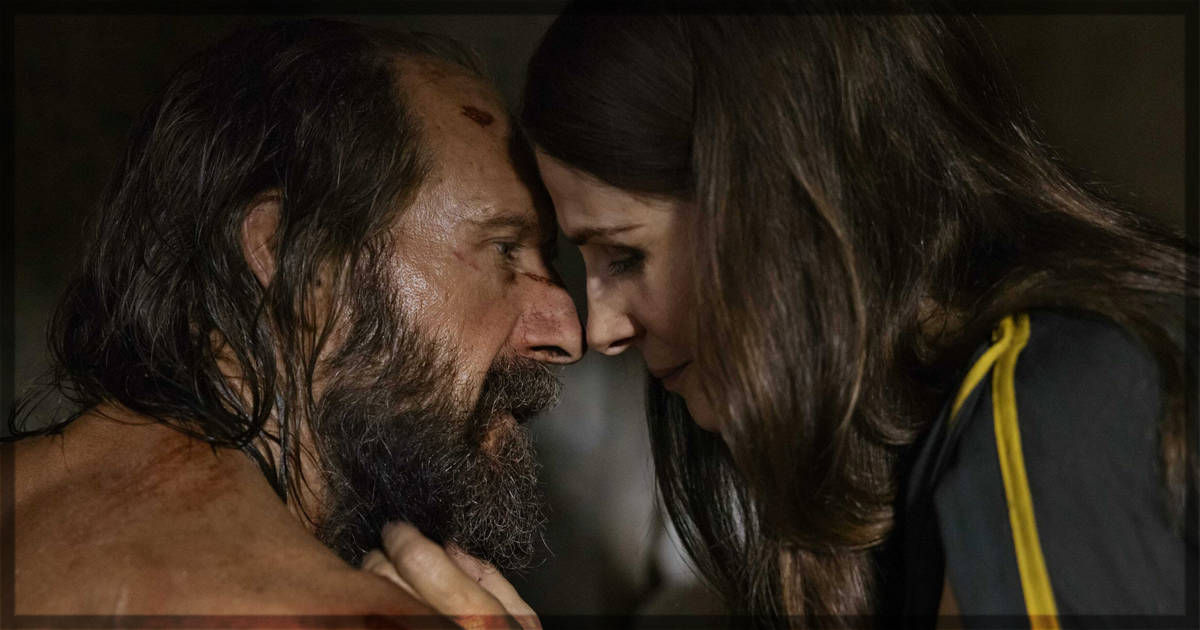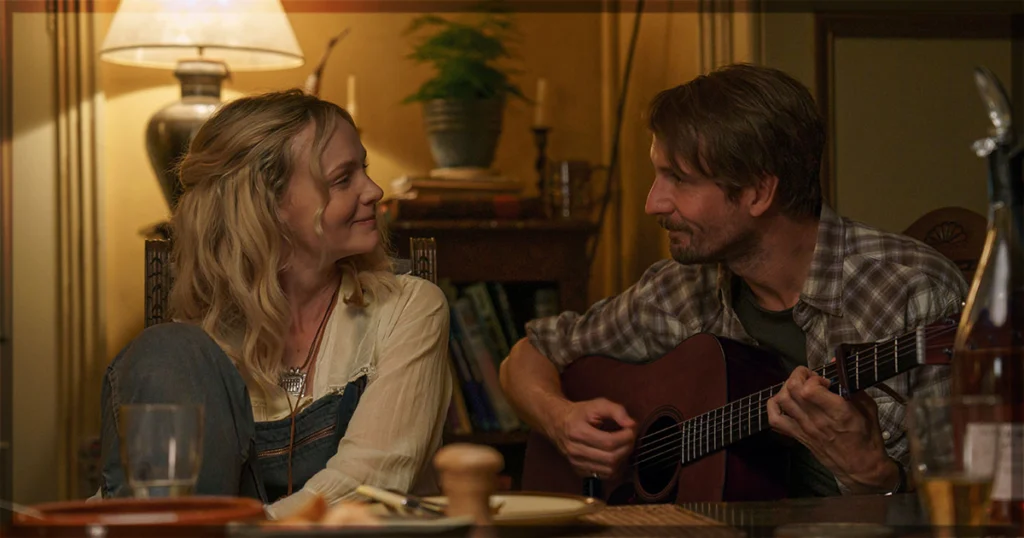The only flaw in the magnificent The Return is that, by virtue of the casting, the audience is able to predict the plot before the characters can. This is however an extremely small complaint in the grand scheme of an unusually subtle and thoughtful war movie. For one thing, it’s not about the war at all, but the aftermath, and on how those who have survived the war must continue to survive. How often do we see either one of those issues addressed on film, whether at the Glasgow Film Festival or elsewhere? Much less both at once?
On a small Greek island, an injured naked man (Ralph Fiennes) is discovered washed ashore by the local pigman, Eumaeus (Claudio Santamaria). The shipwrecked man eventually recovers enough to inquire where he is: the island of Ithaca, ruled by a queen named Penelope (Juliette Binoche), whose husband sailed for the Trojan war decades ago with most of the island’s men. None of them have returned, meaning among other calamities the prince Telemachus (Charlie Plummer) has grown up without his father, although his life has been under constant threat every moment. In the castle courtyard, there are camped dozens of suitors who wish to be king, and until Penelope chooses one she and Telemachus are their prisoners. Penelope weaves and reweaves a cloth, claiming she will choose a husband when it is finished. The suitors bully Telemachus and pillage the island, and the islanders, for their own amusement. Only one of the suitors, Antinous (Marwan Kenzari), uses the tactic of being nice to Penelope. And while it’s implied that Penelope is indeed fond of Antinous, she is a faithful wife who does not want to choose a new husband. She is waiting for her Odysseus to come home.
Mr. Fiennes’ personal trainer is prominently mentioned in the closing credits, for there is so much of Mr. Fiennes on display that it’s no wonder such work was wanted. The ways in which the characters are costumed by Sergio Ballo make it vividly apparent just how much work had to go into every inch of cloth. Indeed the hardscrabble nature of life on Ithaca is left, though Giuliano Pannuti’s wonderful production design, for us to consider as the characters go about their lives. The hard work required for every morsel of food they eat and the shelters built for their bodies is rarely so obvious onscreen. The contempt the suitors have for the island and islanders is expressed through casual violence and even more casual murder. But the islanders have taken from Penelope’s determined example and lost neither hope nor dignity. Eumaeus is the poorest of all of them, but he finds a spare blanket with which to wrap the shipwrecked man he could have easily left to die, but didn’t.
But this kind of thoughtful, measured understatement is director Uberto Pasolini’s trademark. His previous movie, the wonderful Nowhere Special, starred James Norton as a terminally ill single father using his remaining time to choose an adoptive family for his little boy. That movie swerved all possible cliches about Northern Ireland and life with illness as it used silence to emphasise the enormity of the plot.
And here silence is powerful too. Penelope paces her palace at night, glimpsing her servant girls having sex with various suitors as she plots various ways of continuing to protect them. Ms. Binoche here allows weariness as her primary emotion, but it’s clear her Penelope is a kind and quick-witted queen who will fulfil her responsibilities to her last breath. The shipwrecked man could speak at length about his experiences in the Trojan War if he chose, but his haunted silence says more about the price of victory than any words ever could. Mr. Fiennes has spent his recent career doing what most prominent actors claim they would, which is one movie for the money and one for the art. He has alternated between major blockbuster franchises and smaller art-house movies with unusual settings requiring physical boldness and not always working in English. But either way for the most part his roles examine power and its consequences, whether in enabling a license to kill, terrorising a young wizard or choosing a new pope. In The Return the issue is the aftermath of power, and what happens to a king when his kingdom is in ruins through his own grievous fault.
And what the script written by Mr. Pasolini, John Collee and the late Edward Bond knows surprisingly well is this: violence is often the easiest way to bring about peace, but it’s the method with the highest cost. The shipwrecked man has had decades to learn this lesson the hard way, and the many unpleasant suitors menacing Penelope do not know this at all. The ways in which the shipwrecked man comes to claim his identity and his responsibilities involve another very high price, but its payment is an unavoidable necessity. The Return is a movie for adults who have made mistakes, and who continue to strive to be better nonetheless. Every second of it is a hard-earned joy.
The Return is now in theaters.
Learn more about the film, including how to buy tickets, at the official website.


